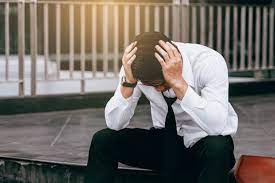By specific phobia we mean an excessive and unmotivated fear of situations, objects or activities that are normally harmless. Often those who suffer from it are aware of the unreasonableness of their fear, but despite this they implement a conduct of avoidance in order to never have to face the object of the phobia.
Social phobia
In social phobia, there is a marked and persistent fear of interaction with other people and of social or performance situations.
Typically, those who suffer from it have hypersensitivity to the opinions of others, fear of rejection and a strong tendency to self-evaluation.
When related anticipatory anxiety interferes with the life of the individual, for example preventing the performance of one’s profession or compromising social relationships, we speak of a phobic disorder.
Among the various pictures that affect social phobia are public speaking (the so-called stage fright), interacting with important people or with their superiors, taking exams, attending parties or lunches, looking other people in the eye and working or write while being watched.
Symptoms
The manifestations related to anxiety present a very high subjectivity: there are in fact various symptoms and each individual tends to present mainly some rather than others.
They can affect the emotional, physical or behavioral sphere.
Psychic symptoms of anxiety include:
- psychic tension,
- agitation,
- sense of fear, appearance of previously non-existent fears or of specific situations or
- things (phobias),
- presence of anticipatory anxiety: fear of events that are about to happen and are
- perceived as dangerous,
- feeling of being fragile and
Treatment and remedies
In generalized anxiety disorder, in which chronic and excessive anxiety and worry about several life situations or activities are highlighted, good results can be obtained with psychotherapy, possibly associated with drug therapy.
Psychoanalytically oriented therapies try to identify the cause of anxiety through introspection and the search for underlying conflicts, while with the cognitive-behavioral approach, good results can be obtained thanks to an orientation focused mainly on the present and on the resolution of fears. and anxieties: the patient is taught techniques to cope with the distortions of thought induced by the pathology.
Panic Disorder and Agoraphobia
As with other anxiety disorders, an important first step is to reassure the patient that his disorder is well known and treatable.
Some practical tips include eliminating coffee and alcohol from the diet.
To counteract the hyperventilation that occurs during a panic attack, it may be advisable to hold your breath for 10-15 seconds or breathe inside a bag.
Summary
Relaxation techniques can also help the patient to have greater self-control during a panic attack.
Therapeutic strategies for panic disorder are based on psychotherapy alone or associated with drugs; benzodiazepines are usually administered during or immediately after the acute attack to shorten the duration of symptoms and therefore represent a temporary treatment, while SSRIs are prescribed as medium to long-term therapy.
